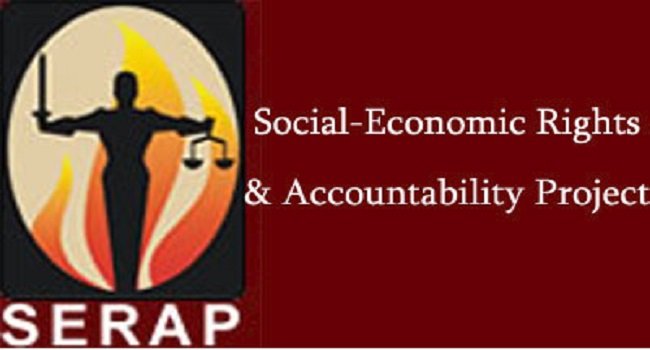The Federal High Court sitting in Lagos has ordered Alhaji Lai Mohammed, a former Minister of Information and Culture and the ministry of information to disclose the details of the agreement between the Federal Government and X, formerly Twitter, to assess whether the agreement complies with the exercise of Nigerians’ human rights online.
The judgment was delivered in May 2024 by Hon. Justice Nnamdi Okwy Dimgba following a Freedom of Information suit number: FHC/L/CS/238/2022
The suit was instituted by brought by the Socio-Economic Rights and Accountability Project (SERAP). The certified true copy of the judgment was obtained last Friday.
his judgment, Justice Dimgba held that, “The former minister and the Ministry of Information are directed and compelled to provide a copy of the agreement between the Nigerian Government and Twitter to SERAP solely to ascertain its impact on the protection of fundamental human rights of Nigerians.”
Justice Dimgba stated that, “Disclosing the details of the agreement between the Nigerian Government and Twitter is in the public interest and does not affect Twitter’s business interest as a third party. It is also not prejudicial to Nigeria’s sovereignty and national security.”
Justice Dimgba also stated that, “The agreement between the Nigerian Government and Twitter must still be disclosed irrespective of the harm to Twitter if it would be in the public interest to make sure disclosure.”
Justice Dimgba dismissed the objections raised by the minister’s counsel and upheld SERAP’s arguments. Consequently, the court entered judgment in favour of SERAP against the minister.
Justice Dimgba further said, “The minister has failed to prove that the President has followed due process of law to designate Twitter as a Critical National Information Infrastructure upon the National Security Adviser’s recommendation and issued an Order in the Federal Gazette in that regard.”
“However, this defence is hypothetical and does not point to the specific business or contractual interests of Twitter that could be affected.”
“It is my view that the disclosure of the details of the agreement as requested by SERAP will not interfere with the commercial interests and trade secrets of Twitter or lead to financial losses to it, as the former minister has failed to prove the same.”
“Besides, Section 15(4) of the Freedom of Information Act envisages only real and not hypothetical financial loss or gain to or prejudice to, the competitive position of or interference with contractual or other negotiation of a third party like Twitter which could be affected by the disclosure.”
“No evidence was placed before this Court pointing to the fact that Twitter has an agreement with another country as a precondition for its operation in such jurisdiction as obtainable in Nigeria.
“I am of the view that SERAP has a legitimate reason to wish to be availed of the agreement, which is to understand how the agreement affects them and other Nigerians as far as the protection of the human rights of Nigerians are concerned.
“Another point of controversy is whether the need to disclose the agreement for public interest is subject to the need to protect national sovereignty, as argued by the minister. National sovereignty depending on context is synonymous with national security.”
In most cases, the need for national security outweighs public interest, including protection of fundamental human rights. In this case, however, I am of the view that the reason for the refusal by the minister to disclose the agreement does not come within the need to protect national security and sovereignty.
“The minister’s defence is predicated on the Cybercrimes (Prohibition and Prevention Act) 2015 but has failed to prove how the Act relates to the Twitter agreement other than mentioning the same.
“More than merely linking SERAP’s request for the agreement to ‘critical national information infrastructure’ in section 3 of the Cybercrime (Prevention and Prohibition) Act, nothing more is said about its relevance and how it supports non-disclosure of the Twitter agreement.
“As such, the Cybercrime Act cannot apply to this case, and the protection that would have availed the minister is exempted. The minister also failed to prove how SERAP’s request for the agreement between the Nigerian Government and Twitter came within the protection of the Official Secrets Act.
“SERAP’s lawsuit falls within the framework of Section 20 of the Freedom of Information Act.”
“The minister is directed and compelled to provide a copy of the agreement requested to SERAP to enable the organization to study the same and come to an assessment of whether the agreement incorporates the provisions of Chapter IV of the Nigerian Constitution 1999 [as amended] on fundamental human rights and Nigeria’s international human rights obligations.”
“It is clear that Twitter was from the beginning ostensibly suspended from operating in Nigeria’s cyberspace solely to protect the country’s corporate existence. The same ban was lifted after Twitter reached agreement with the Nigerian Government on some terms and conditions for its operation in Nigeria’s cyberspace and the former minister has not denied the existence of such an agreement.
“SERAP’s request does not involve disclosing personal information but relates to an agreement between the government and an international company that plays in the social media and public data space.
“By paragraph 13 of SERAP’s affidavit evidence, the organization requested a copy of the agreement to know whether it complies with Nigeria’s domestic fundamental human rights laws and international treaties to which the country is a state party.







